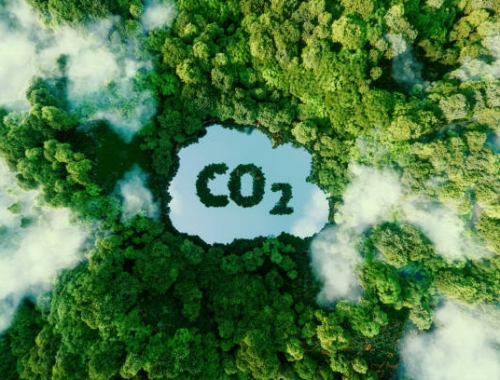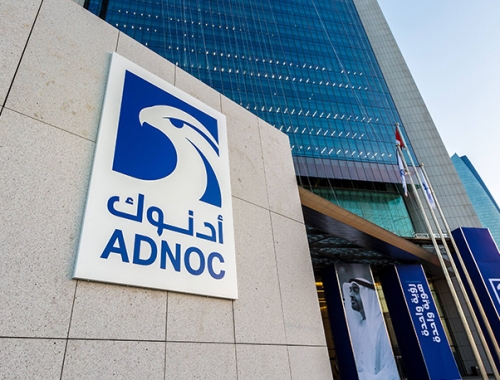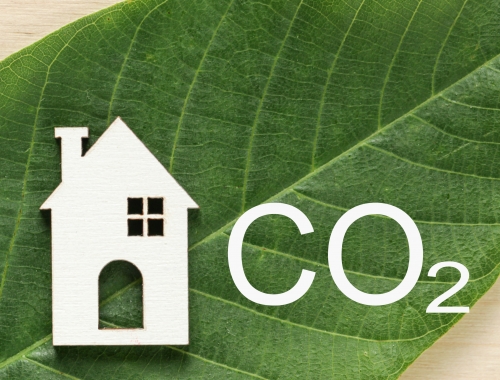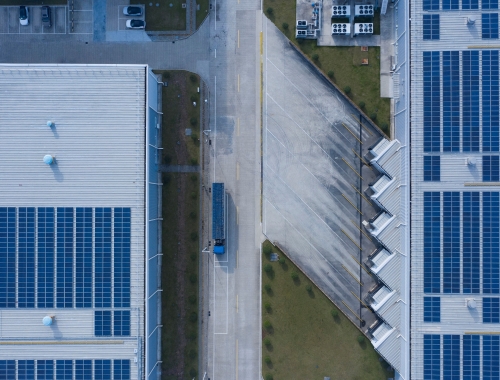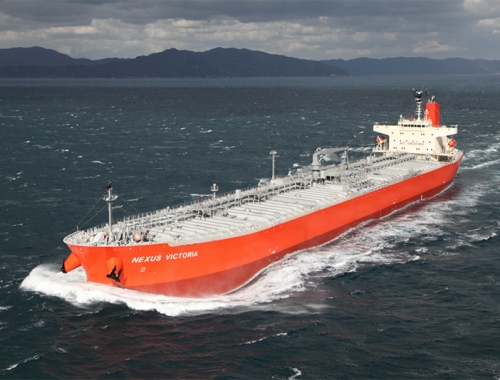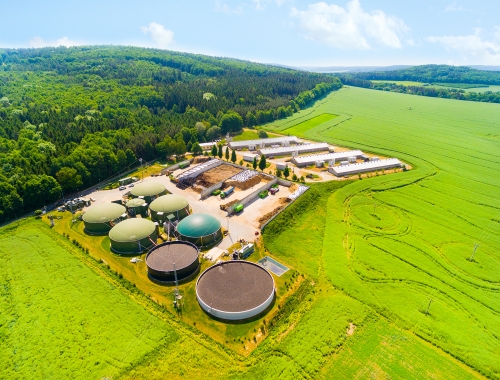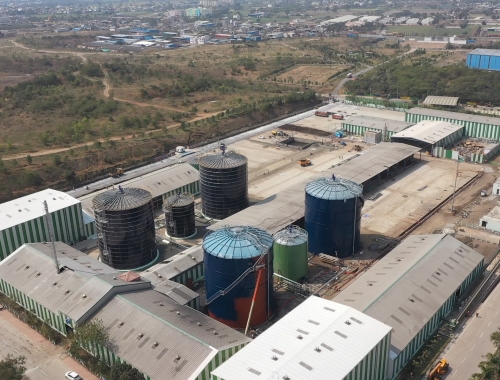ADNOC launches $15bn transition plan
SUMMARY
The company plans investments in CO2 capture, storage and absorption, hydrogen, ammonia, renewables and electrification.
By Gary LakesOne of the world’s largest oil, gas and chemical producers, the Abu Dhabi National Oil Company (ADNOC) has launched a $15bn programme to decarbonise a significant portion of its operations, cutting its carbon intensity by a quarter by 2030. This is a step that the state-owned company says will lead the UAE towards its zero emissions goal for 2050. The plan covers investments in CO2 capture, storage and absorption, clean power and green electrification, hydrogen and ammonia, as well as a continuing commitment to zero gas flaring, the company said in a statement.
ADNOC said it “will apply a rigorous commercial and sustainability assessment to ensure that each project delivers lasting tangible impact.”
In recent weeks, the ADNOC has announced a number of projects and joint ventures designed to address the issue of carbon emissions that can be used as examples of its commitment to halt global warming as it prepares to host COP28 later this year.
CO2 injection
In mid-January, the key OPEC member announced during the course of Abu Dhabi Sustainability Week that work had begun on a well that will inject CO2 into a carbonate saline aquifer.
“At Al Reyadah, ADNOC deployed the region’s first carbon capture project at scale and we are taking another tangible step to deliver on our $15bn decarbonisation action plan with the world’s first fully sequestered CO2 injection well,” Yaser Saeed Al Mazrouei, the upstream executive director of ADNOC, told the gathering.
The project is scheduled to start injecting CO2 into the saline aquifer at Al Reyadah in the second quarter of this year, where there is an existing carbon capture facility, which can capture 800,000 metric tons of CO2 annually. The new project will fully sequester at least 18,000 mt/yr from Fertiglobe’s UAE operations for injection in Abu Dhabi’s onshore saline aquifers.
Fertil serves as the Ruwais fertilisers industry, operating in the Ruwais industrial zone. In 2021, it began production of blue hydrogen and blue ammonia for export. The new injection well is meant to enhance carbon reduction in the production of low-carbon ammonia at Fertil.
ADNOC has also recently formed a Low Carbon Solutions and International Growth Directorate, which will play a key role in the implementation of the new projects and initiatives.
The road to COP28
Dr. Sultan Ahmed Al Jaber, the UAE’s industry minister and ADNOC’s CEO, will also serve as the chairman of COP28. Announcing the $15bn programme, he stressed that ADNOC continued to take steps towards new and cleaner technologies.
“Now, more than ever, the world needs a practical and responsible approach to the energy transition that is both pro-growth and pro-climate, and ADNOC is delivering tangible actions in support of both these goals,” he said. “Cementing our strong track record of responsible and reliable energy production, ADNOC will fast-track significant investments into landmark clean energy, low-carbon and decarbonisation technology projects.
“As we continue to future-proof our business, we invite technology and industry leaders to partner with us, to collectively drive real and meaningful action that embraces the energy transition. This strategic, multi-billion-dollar initiative underscores ADNOC’s industry leadership as a leading global provider of lower-carbon energy,” he said.
ADNOC said it would increase its carbon capture capacity to 5mn mt/yr by 2030 by leveraging the UAE’s geological properties while preparing to capture emissions from its Habshan gas processing facility. Its planned expansion in CCS will support a significant scale up in hydrogen and lower-carbon ammonia production.
Low-carbon fuels
ADNOC is targeting first production from a 1mn mt/yr blue ammonia plant at the TA’ZIZ complex in Ruwais in 2025. In mid-January, the Abu Dhabi Chemicals Derivatives Company (TA’ZIZ) and Proman AG also signed a shareholders’ agreement to develop the first world-scale methanol production facility at the company’s industrial zone. That facility will have a 1.8mn mt/yr capacity. The methanol will likely be used by TA’ZIZ and other companies in the UAE for the production of chemicals and lower-emissions fuels. First phase development of the project is estimated at around $5bn.
Clean power
Further advances in the ADNOC universe have been made with its increased use of clean electricity to power its plants. Since January 2022, the state-owned company has received 100% of its grid power from Emirates Water and Electricity Company (EWEC), which is drawn from nuclear and solar sources. With this arrangement, ADNOC is the first major oil and gas company to decarbonise its power at scale through a clean power agreement. The company has also finalised a $3.8bbn agreement to build the first subsea transmission network in the region. It will connect ADNOC’s offshore operations to the onshore power network and will potentially reduce the company’s offshore carbon footprint by as much as 50%.
The UAE has created an example of life in a sustainable urban setting with Masdar city, which runs on renewable energy. Begun in 2008, the city is designed to be a hub for research and development for green energies and technologies. The city runs on 20 GW of clean energy and capacity is targeted to reach 100 GW by 2030. It is also involved in producing green hydrogen.
Carbon into rock
One of the most beguiling projects that ADNOC is engaged in is one that will capture CO2 and inject it underground where it will turn int rock. ADNOC also announced in January that it has formed a partnership with Fujairah Natural Resources Corporation (FNRC), Masdar and a company named 44.01 to start a pilot programme that will permanently mineralize CO2 within rock formations in Fujairah, an emirate of the UAE.
The project is underway and is using 44.01’s Earthshot prize-winning technology for carbon capture and mineralization. The technology removes CO2 from the atmosphere, dissolves it in sea water and then injects it into peridotite rock formations where it will mineralize – making it impossible for it to escape back into the atmosphere. Fujairah was chosen as the location for the project due to its abundance of peridotite, a rock that naturally reacts to CO2.
Masdar will supply solar energy that will power the project. If the pilot project proves successful, it could lead to widespread use across the region and elsewhere, perhaps ultimately leading to the mineralization of billions of mt of CO2. This will be the first project of its kind in the Middle East.
“Across ADNOC we are committed to finding new ways to decarbonize our operations, while meeting our responsibility to supply vital energy to the world,” Sophie Hildebrand, CTO at ADNOC said at the project signing ceremony. “As the first energy company in the region to run a carbon-negative project of this kind, this pilot marks the latest step in our $15bn investment into projects that will reduce our carbon footprint and help us achieve our Net Zero by 2050 ambition.”

